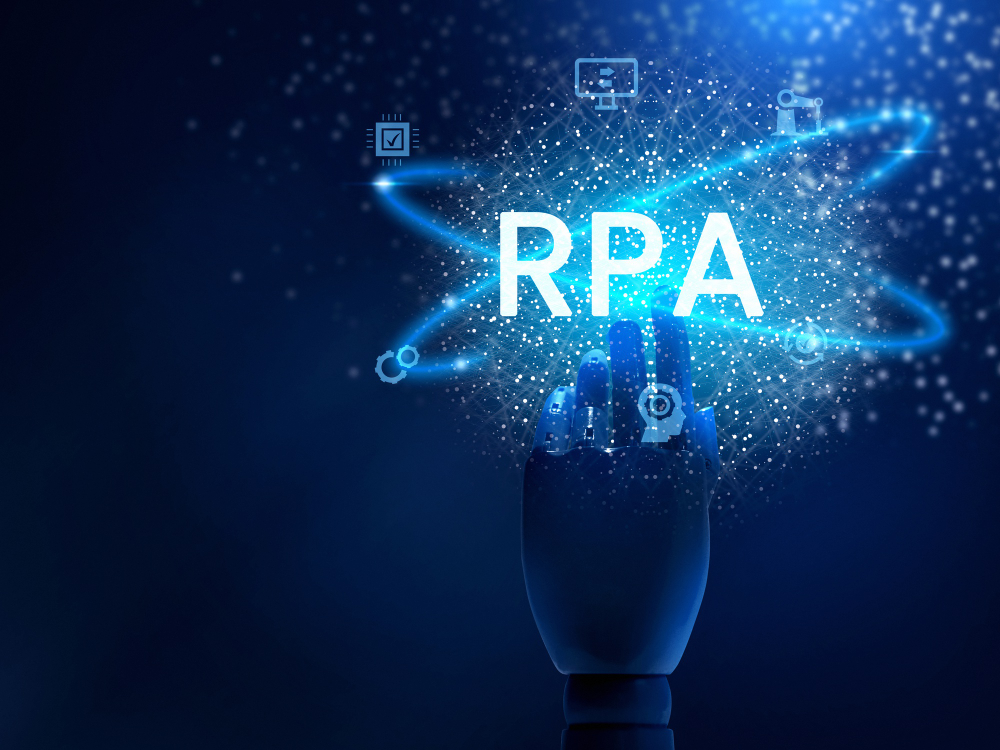Robotic Process Automation (RPA) is revolutionizing the way industries operate by automating repetitive, rule-based tasks. This technology enhances efficiency, reduces errors, and frees up human workers to focus on more strategic activities. Below, we explore the key technologies underpinning RPA and its diverse applications across various industries.
Key Technologies in RPA
1. UiPath
UiPath is a widely recognized RPA tool known for its user-friendly interface, extensive functionality, and robust community support. It caters to businesses of all sizes and is particularly noted for its ease of use and rapid deployment capabilities.
Key Features:
- Drag-and-Drop Interface: UiPath offers an intuitive drag-and-drop interface that allows users to design automation workflows without needing extensive programming knowledge.
- Extensive Library of Pre-built Activities: UiPath provides a comprehensive library of pre-built activities that covers a wide range of automation tasks, from data extraction to system integration.
- AI Integration: UiPath integrates AI and machine learning capabilities, enabling bots to handle more complex tasks that involve decision-making, natural language processing, and computer vision.
- Scalability: UiPath can scale from simple desktop automation to complex enterprise-wide automation, supporting both attended (human-in-the-loop) and unattended bots.
- Community and Marketplace: UiPath has a strong community and a marketplace (UiPath Go!) where users can share and download reusable components, bots, and templates.
Applications:
- Finance and Accounting: Automates invoice processing, account reconciliation, and financial reporting.
- Healthcare: Manages patient records, automates claims processing, and ensures compliance with healthcare regulations.
- Customer Service: Powers chatbots and virtual assistants to handle customer queries and support tickets.
2. Automation Anywhere

Overview: Automation Anywhere is a powerful RPA platform that focuses on providing scalable automation solutions with advanced cognitive capabilities. It is designed to support both simple and complex automation needs, making it suitable for enterprises looking to scale their automation efforts.
Key Features:
- Automation 360: The platform’s unified, cloud-native RPA solution that combines RPA, AI, and machine learning to deliver end-to-end automation.
- Bot Store: Automation Anywhere offers a marketplace where users can access pre-built bots and digital workers to accelerate automation projects.
- Cognitive Automation: The platform includes advanced features like IQ Bot, which uses AI to understand unstructured data, enabling automation of tasks that involve interpreting documents and emails.
- Scalability and Flexibility: Automation Anywhere supports both attended and unattended automation, allowing businesses to scale their RPA initiatives across different departments and processes.
- Security and Compliance: The platform emphasizes strong security features, including role-based access control, end-to-end encryption, and detailed audit trails.
Applications:
- Human Resources: Streamlines employee onboarding, payroll processing, and benefits administration.
- Retail: Automates inventory management, order processing, and customer support functions.
- Manufacturing: Enhances supply chain management, quality control, and production scheduling through automation.
3. Blue Prism
Overview: Blue Prism is known for its strong governance, security features, and suitability for large-scale enterprise automation. It is a pioneer in the RPA space and is often preferred by organizations that require robust compliance and regulatory adherence.
Key Features:
- Digital Workforce: Blue Prism provides a highly scalable and secure digital workforce that can automate complex, end-to-end business processes.
- Strong Governance and Compliance: The platform includes features like role-based access, audit logs, and robust security protocols, ensuring compliance with industry regulations.
- Integration Capabilities: Blue Prism integrates seamlessly with various enterprise applications and systems, including ERP, CRM, and custom-built solutions.
- Process Studio: Blue Prism’s Process Studio offers a visual design environment where users can create automation workflows using a flowchart-like interface.
- AI and Cognitive Services: Blue Prism integrates with AI and cognitive services to enable intelligent automation, including natural language processing, sentiment analysis, and machine learning.
Applications:
- Banking and Finance: Automates KYC (Know Your Customer) processes, loan processing, and compliance reporting.
- Insurance: Streamlines claims processing, policy administration, and customer service.
- Telecommunications: Enhances service provisioning, network management, and customer support through automation.
4. Pega
Overview: Pega, short for Pegasystems, is a powerful software platform designed to help organizations automate manual processes and transform them into efficient, automated workflows. Known for its robust capabilities in business process management (BPM), customer relationship management (CRM), and dynamic case management, Pega offers a comprehensive suite of tools that enable businesses to streamline operations, enhance customer engagement, and improve overall productivity.
Key Features
1. Business Process Management (BPM):
- Process Automation: Pega’s BPM capabilities allow organizations to design, automate, and optimize complex business processes. The platform’s visual process designer helps users model workflows with ease, ensuring that business rules and logic are accurately captured.
- Case Management: Pega excels in dynamic case management, enabling the automation of complex, unstructured processes that involve multiple steps and decision points. This ensures that cases are handled efficiently, from initiation to resolution.
2. Customer Relationship Management (CRM):
- 360-Degree Customer View: Pega CRM provides a unified view of customer data, enabling businesses to deliver personalized and contextually relevant experiences. The platform integrates data from various sources to present a comprehensive customer profile.
- Intelligent Customer Engagement: Leveraging AI and machine learning, Pega CRM offers predictive analytics and real-time decisioning to guide customer interactions, enhance satisfaction, and improve retention rates.
3. Artificial Intelligence and Machine Learning:

- Predictive Analytics: Pega’s AI-driven analytics tools predict customer behavior and recommend the next best actions, allowing organizations to proactively address customer needs and optimize business outcomes.
- Robotic Process Automation (RPA): Pega integrates RPA to automate repetitive, rule-based tasks, reducing manual effort and increasing operational efficiency.
4. Low-Code Development:

- App Studio: Pega’s low-code development environment, App Studio, empowers business users and developers to collaboratively build applications with minimal coding. This accelerates the development process and ensures that applications are closely aligned with business requirements.
- Agile Development: Pega supports agile methodologies, allowing teams to quickly iterate on solutions, respond to changing business needs, and deliver value faster.
5. Integration Capabilities:
- Seamless Integration: Pega’s platform integrates easily with existing systems, databases, and third-party applications. This ensures smooth data flow and interoperability across the organization’s IT landscape.
- API Management: Pega provides robust API management tools, facilitating the creation, deployment, and management of APIs for seamless integration with external systems and services.
6. Compliance and Security:
- Regulatory Compliance: Pega’s platform includes features that help organizations meet regulatory requirements, such as audit trails, access controls, and data encryption.
- Security: Pega ensures the security of applications and data through comprehensive security measures, including role-based access control, encryption, and regular security updates.
Applications Across Industries
Financial Services:
- Loan Processing: Automates the end-to-end loan origination process, reducing processing times and improving customer experience.
- KYC and AML Compliance: Streamlines Know Your Customer (KYC) and Anti-Money Laundering (AML) processes through automated workflows and real-time decisioning.
Healthcare:
- Patient Engagement: Enhances patient engagement by automating appointment scheduling, follow-ups, and personalized communication.
- Claims Management: Automates insurance claims processing, reducing turnaround times and improving accuracy.
Telecommunications:
- Service Provisioning: Automates the provisioning of telecom services, ensuring quick and error-free activation for new customers.
- Customer Support: Leverages Pega’s AI capabilities to provide intelligent, automated customer support, improving response times and customer satisfaction.
Public Sector:
- Case Management: Manages citizen cases efficiently, from applications and inquiries to resolutions, ensuring timely and transparent service delivery.
- Regulatory Compliance: Automates compliance processes, ensuring adherence to regulations and reducing administrative burden.
Feel free to share your thoughts and experiences with on-demand computing in the comments below! Let’s get the conversation started.






